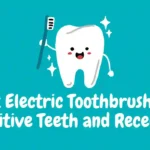As an Amazon Associate. I earn from qualifying purchases
Your smile is one of the first things people notice about you, and ensuring it stays radiant and healthy is a top priority. Dental sealants are a frontline defense for your teeth, sealing off vulnerable areas that are prone to decay. But you might wonder, How Long Does Sealant Last on Teeth? In this comprehensive post, we’ll explore the lifespan of tooth sealants and share tips on how to keep them effective for as long as possible.

Learn About Tooth Sealants
Tooth sealants are a protective barrier applied to the chewing surfaces of molars and premolars. These areas are rich in pits and fissures that can accumulate food remnants and bacteria, leading to cavities. Sealants are most commonly recommended for children and teenagers, but adults who are cavity-prone can also benefit from them.
What are Tooth Sealants and Why We Use Them
The sealant is a thin, plastic coating that is painted onto the chewing surfaces of teeth. It bonds into the grooves, acting as a barrier to protect enamel from plaque and acids. Sealants have been shown to reduce the risk of decay by 80% in molars, which are especially susceptible to cavities.
How They Keep Teeth Safe from Rot and Holes
Deep grooves and ridges on the molars can be hard to clean, as they provide a cozy home for food and bacteria. Sealants make these surfaces smooth and easy to clean, preventing the accumulation of plaque in those hard-to-reach areas. Without the sealant, these regions are more likely to develop decay, which can lead to dental caries or cavities.
How Long Does Sealant Last on Teeth?
The lifespan of dental sealants can vary based on several factors, including the quality of the application, your dental hygiene, and the wear and tear on your teeth.
Good Things About Long-Lasting Sealants
A well-maintained sealant can last several years, providing long-term benefits such as:
- Reduced Chance of Tooth Decay: With a long-lasting sealant, you dramatically decrease the likelihood of developing cavities in the treated areas.
- Saves Time and Money: Beyond preventing the pain and inconvenience of cavities, maintaining good dental health saves on costly restorative procedures and dental visits over time.
Keep Your Sealants Going for Longer
To extend the life of your dental sealants, there are several proactive steps you can take.
Brush Your Teeth Twice a Day
Brushing your teeth twice a day, preferably with a fluoride toothpaste, helps maintain oral health and preserve the sealants. The fluoride strengthens the teeth and the sealant’s bonds to the enamel.
Use Good Mouthwash
A fluoride mouthwash can further protect your teeth and assist in the fight against cavities. It’s an excellent addition to your oral hygiene routine, especially if you have dental sealants.
Watch Your Sugar Intake
Sugar feeds the bacteria in your mouth, which produce acids that can wear down the sealants. Limiting sugary foods and drinks can help preserve the integrity of the sealant over time.
Don’t Chew on Hard Things
Biting down on hard items, like ice, can create stress on sealants and leads to their premature wear and tear. It’s best to avoid chewing on hard objects and to use your teeth for their intended purpose of eating and speaking.
FAQs
Are There Any Side Effects to Getting Sealants?
There are minimal risks associated with dental sealants. Some individuals may experience an allergic reaction to the sealant material, but this is exceedingly rare.
Can You Get Sealants Later in Life?
While sealants are most commonly applied to children’s new permanent teeth, adults who are at a high risk of tooth decay can also benefit from them. Talk to your dentist to determine if sealants are right for you.
What Should I Do If My Sealant Falls Off or Wears Away?
If you notice that your sealant is no longer in place, contact your dentist. They can assess the affected tooth and determine if the sealant needs to be reapplied.










